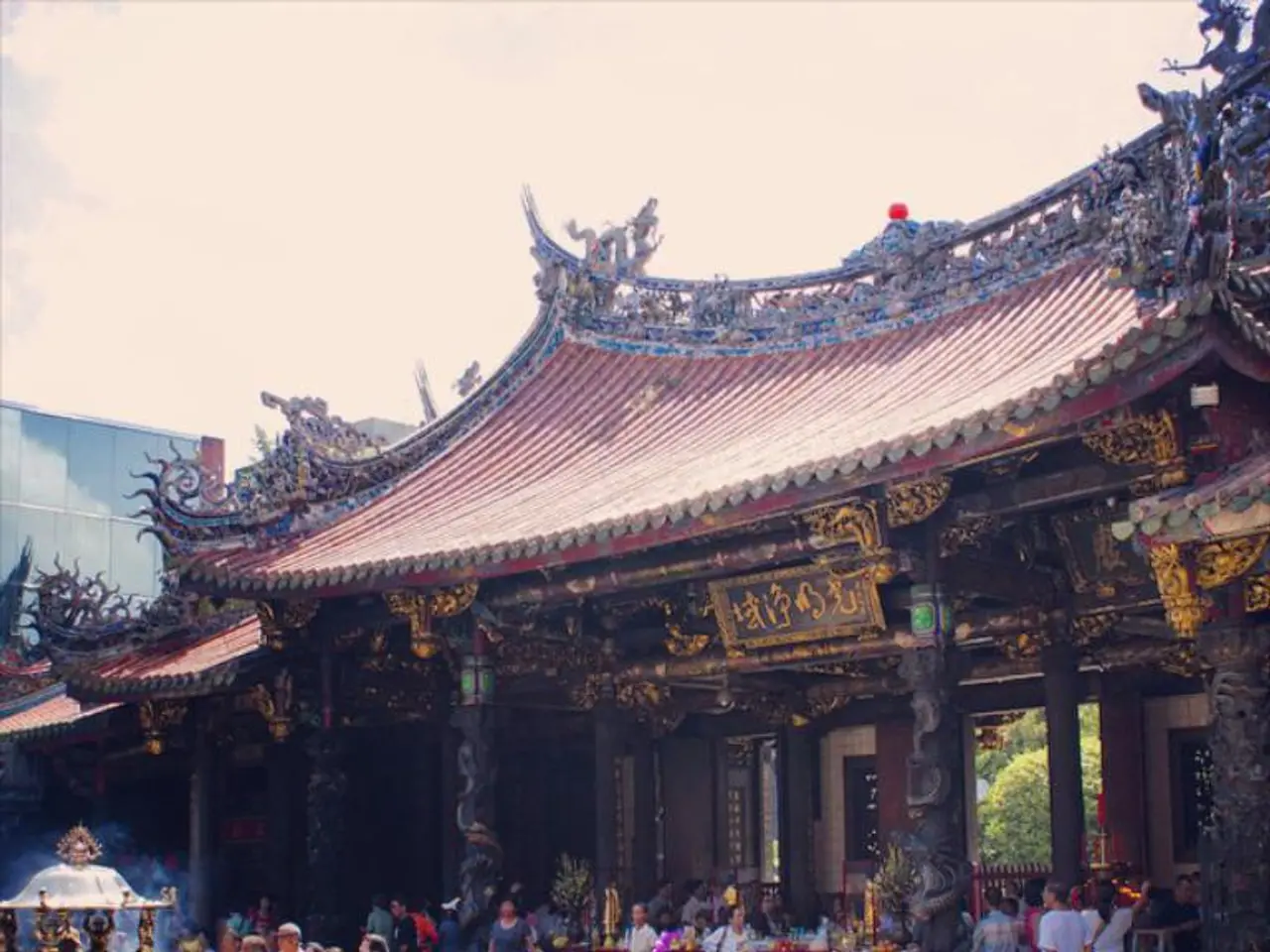Celebration of Mountain Day: Japan's National Holidays marking respect for mountains
Celebrating Nature and Culture: Japan's Mountain Day (Yama no Hi)
Every year on August 11, Japan honours its mountainous landscapes with Mountain Day (Yama no Hi), a national holiday that encourages people to connect with nature and appreciate the spiritual, cultural, and recreational significance of mountains in Japanese life.
The idea for Mountain Day was first proposed by the Japanese Alpine Club in the 1960s and was officially recognized in 2014 when the Act on National Holidays was amended. The holiday was first observed in 2016 [1][2].
August 11 was chosen for Mountain Day because the kanji for "8" (八) visually resembles a mountain, and the number 11 looks like a pair of tall trees. This date also coincides with the summer vacation period, making it an ideal time for outdoor activities such as hiking and mountain visits [1][2].
Mountain Day serves multiple purposes. It encourages outdoor activities like hiking and nature excursions, promotes cultural events related to mountains, and offers spiritual reflection at mountain shrines and temples, reflecting Japan’s Shinto and Buddhist traditions [1].
During Mountain Day, Mount Takao, which is easily accessible from central Tokyo and popular among casual hikers, attracts many visitors. Japan's mountainous terrain covers over 70% of the country's land area, and the country has more than 20 mountains with an elevation over 3,000 meters, all located in the center of the country [3].
One of the most famous mountains in Japan is Mount Fuji, an international icon and a UNESCO World Heritage site. Standing at 3,776 meters, Mount Fuji is popular among Japanese climbers and visitors from overseas [4].
Mountain Day often extends the summer holiday period as it falls just before Obon, a major Japanese summer festival honoring ancestors, typically observed from August 13 to 15. Some businesses also close on August 12 to create a longer break, but the day after Mountain Day (August 12) is not an official holiday [2].
The Mountain Day Establishment Council, formed to promote the idea of Mountain Day, operates a website that is available in both Japanese and English [5]. Throughout August, various mountain-themed events are held across Japan [6]. However, it's a good idea to check ahead before making travel plans, as some stores and facilities close for both Mountain Day and Obon [6].
Mountain Day is a modern celebration that reflects Japan’s deep cultural and spiritual ties to its mountains, while also being a practical addition to Japan’s summer holiday calendar that complements the traditional Obon festivities [1][2].
References:
[1] Japan National Tourism Organization. (2021). Mountain Day (Yama no Hi). Retrieved from https://www.japan.travel/en/spot/2598/
[2] Ministry of Internal Affairs and Communications. (2014). Act on National Holidays. Retrieved from https://www.soumu.go.jp/main_content/001058904.pdf
[3] Japan Meteorological Agency. (2021). Mountainous Areas. Retrieved from https://www.data.jma.go.jp/gmd/kiso/menu/kishou/kishou_e.html
[4] UNESCO World Heritage Centre. (2021). Mount Fuji. Retrieved from https://whc.unesco.org/en/list/679
[5] Mountain Day Establishment Council. (2021). Homepage. Retrieved from https://www.mountain-day.jp/en/
[6] Japan National Tourism Organization. (2021). Mountain Day Events. Retrieved from https://www.japan.travel/en/spot/2598/event/
- People can participate in various mountain-themed events during the extended summer holiday period following Mountain Day (Yama no Hi).
- Capture the serene beauty of Japan's mountainous landscapes during the summer holidays, as you attend cultural events related to outdoor-living and home-and-garden at various locations across the country.




